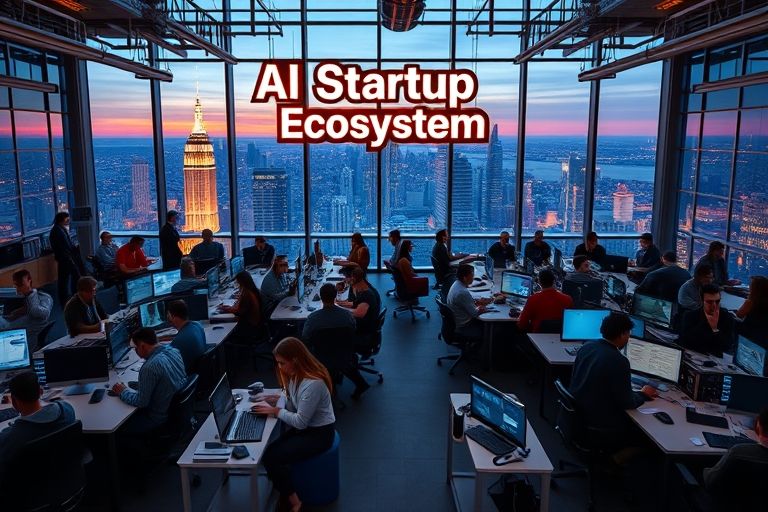The Growing AI Startup Ecosystem: Opportunities, Funding, and Incubators
Introduction
Artificial intelligence (AI) is one of the most transformative technologies of our time. By enabling machines to learn and perform tasks that would typically require human intelligence, AI has the potential to revolutionize industries, reshape the economy, and improve our daily lives. The AI startup ecosystem has been growing rapidly in recent years, with entrepreneurs and investors recognizing the potential of AI-powered technologies. In this article, we will explore the opportunities, funding, and incubators available for AI startups.
The Opportunities for AI Startups
The potential applications for AI are vast, and startups are well-positioned to capitalize on them. AI can be used in a wide range of industries, including healthcare, finance, retail, and transportation. For example, AI-powered chatbots can streamline customer service in retail, while machine learning algorithms can help doctors diagnose diseases more accurately. The global AI market is expected to grow from $21.5 billion in 2018 to $190.6 billion by 2025, creating significant opportunities for startups.
Funding for AI Startups
AI startups require significant funding to develop and scale their technologies. Fortunately, there are many funding opportunities available for AI startups. Venture capital firms, angel investors, and corporate venture funds are all active in the AI space. In 2020, AI startups raised over $33 billion in funding globally, with the United States accounting for over half of the total funding. The top-funded AI startups in 2020 included UiPath, a robotic process automation software company, and Suki.AI, a healthcare voice assistant.
Incubators for AI Startups
Incubators can provide AI startups with the resources and support they need to succeed. Incubators offer mentorship, networking opportunities, and access to funding. Many incubators are also focused specifically on AI startups. For example, the Allen Institute for AI in Seattle offers an incubator program for AI startups, providing funding, office space, and mentorship. Other AI-focused incubators include the Creative Destruction Lab in Toronto and the AI NexusLab in Barcelona.
Examples of Successful AI Startups
There are many successful AI startups that have emerged in recent years. One example is Cognitivescale, a company that provides AI-powered solutions for enterprise customers. Cognitivescale has raised over $50 million in funding and has partnerships with companies such as IBM and Deloitte. Another example is DataRobot, a machine learning platform that has raised over $400 million in funding and has a customer base that includes companies such as Walmart and Humana.
Conclusion
The AI startup ecosystem is a rapidly growing and dynamic space. Opportunities for AI startups are abundant, and funding and incubator support are readily available. As AI continues to revolutionize industries and transform the economy, the potential for AI startups to make an impact is enormous. By leveraging the resources available to them, AI startups can drive innovation and create solutions that improve our world.
